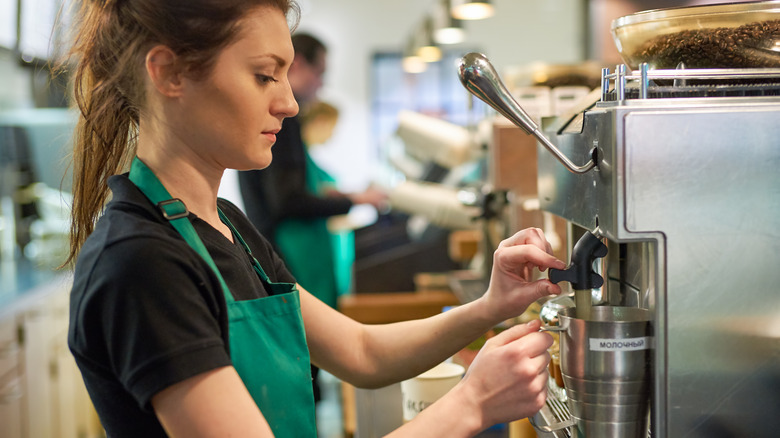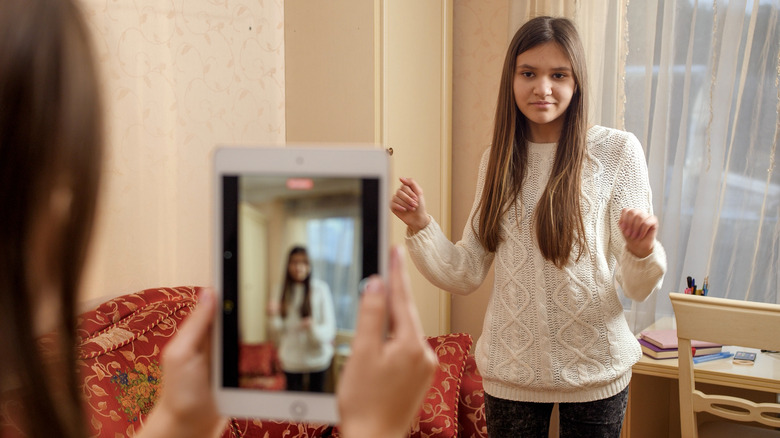How Starbucks Employees Really Feel About Being Filmed For TikTok
Ordering hacks and behind-the-scenes restaurant videos seem more popular than ever on TikTok. Of course, when a video is recorded at a restaurant, chain, or cafe, it often means that workers become pieces of content themselves. One worker at Starbucks has had enough of it.
In a Reddit post uploaded yesterday titled "Don't film us for clout," one alleged Starbucks employee recounted how a customer had ordered a drink under the name "Big Baby." The point was to record a video of the worker saying "Big Baby" without asking. They asked the customer not to record them, and in this case, the customer obliged. "It's weird!" they exclaimed. "I know it speaks to a bigger problem about social media and boundaries but just, don't be a weirdo. Don't film us for your TikToks."
Some commented with stories about how managers instruct workers to comply with the customer's wish. One summarized that section of the training as: "Like if they are filming you that's too bad. Put up with it."
Others offered ways to deal with the issue. "Say you're under witness protection and it's a federal crime to post your new identity online," one suggested. "When they start filming you," one wrote, "whip out your phone and blast some Disney music." Disney has a reputation for copyright striking everything and anything so that will effectively censor the video.
What can Starbucks workers do?
A couple of comments under the Reddit post, though, brought up the possibility of legal ramifications. "If you record me, I'll sue you," one reportedly shouted at a recording customer. They then explained that they live in Wisconsin which has recording consent laws. The other noted that, "Some states have laws against filming people without their consent, might be worth looking into it."
Recording Law, a website dedicated to detailing such laws, explains that the United States has two categories of recording consent. One-party consent laws that allow an individual to record without the consent of the other, and two-party consent that requires both individuals to give consent provided they can consider the situation private. The majority of states operate with one-party consent.
But The Verge learned from Jennifer Ellis, a lawyer, that the privacy clause defangs most legal recourse. "Generally in public," she said, "you do not have a reasonable expectation of privacy and so you can record people." An example Ellis later gives is the subway. As you don't have privacy on the subway, people can record you. However, people who own areas, like Starbucks, can enforce their own bans on videos. Yet, according to some Starbucks workers on Reddit, many workers are told to play along with the TikTok-using customers. So, in most cases, the worker probably doesn't have a case.

